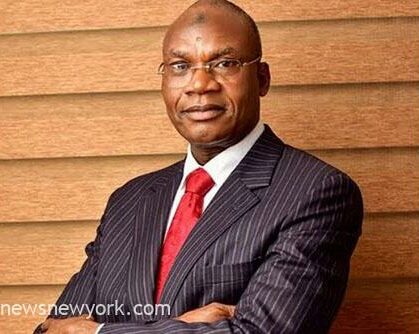The drain of lecturers from public universities in Nigeria, in pursuit of better prospects abroad, is casting a shadow over the prospects of tertiary education in the country.
Unless addressed promptly, this impending crisis has the potential to not only result in a severe shortage of faculty but also undermine the quality of education within these institutions.
As of now, around 50 percent of lecturers have tendered their resignations from their respective universities, and those who remain are contemplating their own departures.
Investigation results indicate that the exodus is motivated by various factors, such as the aspiration for improved working conditions, professional fulfillment, security concerns, inadequate remuneration, insufficient funding, the unresolved matter of unpaid salaries accrued during Academic Staff Union of Universities (ASUU) strikes, and the adverse economic circumstances, among other catalysts.
According to recent data gathered, if the current circumstances persist, up to 80 percent of the remaining workers are poised to depart.
President Bola Ahmed Tinubu’s recent decision to greenlight a salary increase of 35 percent and 23 percent for federal tertiary institution staff does not seem to be deterring a significant number from exploring other options.
The government’s offer has been met with criticism from ASUU, which argues that it is a long way off from the negotiations university lecturers were pursuing.
Read also: Commissioner’s Release: No Ransom Paid, Says Governor Alia
In a letter dated September 14th and addressed to the Minister of Education, Professor Tahir Mamman, Ekpo U. Nta, the Chief Executive Officer of the Salaries, Income and Wages Commission, conveyed that the federal government had issued a circular outlining the implementation of the adjusted salary structure.
After the lengthy eight-month strike by ASUU and the government’s withholding of payment for the strike period, numerous lecturers opted to relocate abroad, either in search of teaching roles or to pursue other vocations in foreign lands.
Africa Today News, New York, learned that the institutions, particularly University of Ibadan (UI), University of Lagos (UNILAG), University of Ilorin (UNILORIN), University of Benin (UNIBEN), Adekunle Ajasin University, Akungba- Akoko (AAUA), Ondo State; University of Uyo, Federal University, Otuoke; Ahmadu Bello University (ABU), Zaria; Federal University of Petroleum Resources, Effurun (FUPRE); Ambrose Alli University (AAU), Ekpoma; and Kaduna State University (KASU), among others, have lost several lecturers, while those remaining are intended to leave as well in search of greener pastures abroad.
Speaking anonymously, a lecturer at UNILAG reported that close to 70 percent of the institution’s most distinguished educators have resigned due to the government’s inability to confront the myriad challenges afflicting the education sub-sector.
‘Currently, more than 70 per cent of bright and promising young academics retained by the university through mentorship have all left the country for greener pastures due to the poor conditions of service in Nigeria. Those remaining are on the verge of leaving. This is unfortunate and a shame,’ he said.
Prof. Folashade Ogunsola, the Vice Chancellor of UNILAG, announced last month that five lecturers had resigned from the university and issued a warning that the situation might deteriorate unless the issues plaguing university education are resolved.
At UI, the situation mirrors that of other universities, as around 75 percent of teaching staff have submitted their resignations and ventured abroad.
Prof. Kayode Adebowale, the Vice Chancellor, addressed this issue during the induction ceremony for the Bachelor of Medicine, Bachelor of Surgery (MBBS) program. He specifically mentioned a department where nine out of 13 lecturers resigned and left the country.
He stressed that these lecturers were not departing with any intention of returning; their move abroad was meant to be permanent.
Adebowale acknowledged the growing departure of professionals from Nigeria as a big challenge within the education sector, referring to it as one of the prominent concerns for the Nigerian university system.
He reflected on the past when the Vice Chancellor could promptly appoint lecturers, drawing on his own experience of becoming a lecturer within just 24 hours. Regrettably, he noted that the situation has deteriorated significantly.

